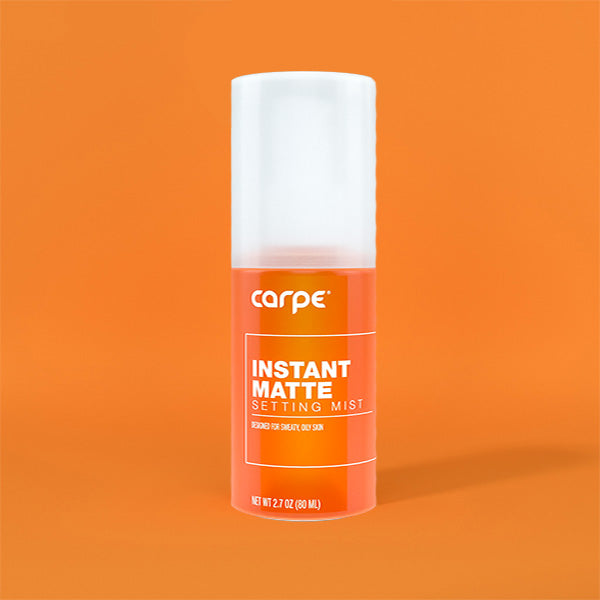Does drinking make us sweat more?
In short, yes.
Many of us enjoy a drink every now and then, but have you ever stopped to wonder how it may be affecting your excessive sweating?
Essentially, drinking alcohol increases the amount of sweat the body produces and this is an issue for people who already sweat excessively.
Alcohol intolerance can cause a person to sweat more excessively than normal, as can alcohol withdrawal.
So, it is important to note how your body responds to alcohol when you're drinking.
How?
So, how exactly does alcohol cause someone to sweat more?
Alcohol affects many of the organ systems in the body, but its most notable symptoms come from how it impacts the brain.
Alcohol is a known sedative and a mild anesthetic. Some of the physiological changes caused by alcohol are:
- flushing
- sweating
- tachycardia (increased pulse)
- increases in blood pressure
These physiological changes are thought to occur due to stimulation of the hypothalamus and the release of chemicals called sympathetic amines and pituitary-adrenal hormones.[3]
While this sounds complicated, it can be explained fairly simply. The hypothalamus is responsible for regulating physiological processes like:
- body temperature
- breathing
- thirst
- hunger
other automatic regulatory systems.
So, when the hypothalamus is stimulated by alcohol, excessive sweating can be the result.
It is thought that hyperhidrosis may be caused by a dysfunction of the sympathetic nervous system, which also happens to be controlled by the hypothalamus.[2]
Alcohol Withdrawal and Excessive Sweating
Intoxication is not only way alcohol causes excessive sweating - alcohol withdrawal can also cause it.
Alcohol acts in a way that depresses the nervous system and slows its activity, and the opposite effect is seen in people who are going through withdrawal.
Physical signs that someone is experiencing an overactive autonomic nervous system as a result of alcohol withdrawal include:
- rapid heartbeat
- excessive sweating
- shaking
Alcohol withdrawal is actually one of the underlying causes of secondary generalized hyperhidrosis, a condition that explains the development of sudden excessive sweating.
Other symptoms that can be caused by alcohol withdrawal include:
- seizures
- hallucinations
- delirium
- other psychological distress.[4]
Alcohol withdrawal is a serious condition and it is important for someone struggling with it to receive medical attention.
Alcohol Intolerance and Excessive Sweating
Some people suffer from a condition called alcohol intolerance which causes them to have a negative reaction to consuming alcohol.
This is due to a genetic variation that prevents them from being able to metabolize alcohol normally.
Some people with this condition experience:
- excessive sweating
- facial flushing
- GI issues
- and other physiological manifestations.
Alcohol intolerance only causes symptoms after it has been ingested.[5]
Is Alcohol Safe for Someone With Hyperhidrosis?
If you have hyperhidrosis it is still safe for you to drink alcohol, but it is a good idea for you to understand how alcohol affects you and your condition.
Once you know how alcohol affects your sweating you will have more control over your circumstances.
You can choose how much you drink and be aware of any discomfort caused by the extra sweating it may cause. This information can empower you to make informed decisions about your alcohol consumption.
Typically, the more someone drinks, the worse their excessive sweating will be.
For some people, the connection between hyperhidrosis and anxiety can be a concern when it comes to drinking.
Hyperhidrosis has been associated with an increased likelihood for using alcohol due to the fact that it can cause social anxiety.
Essentially, a person with hyperhidrosis should look at drinking in a practical way. It is relatively harmless to indulge in a glass or two, but you should be aware of how drinking affects your body.
Sources
- Eze, N. M., Njoku, H. A., Eseadi, C., Akubue, B. N., Ezeanwu, B. A., Ugwu, U. C., & Ofuebe, J. I. (2017). Alcohol consumption and awareness of its effects on health among secondary school students in Nigeria. Medicine, 96(48). doi:10.1097/MD.0000000000008960
- Huddle, J. R. (2014). Hyperhidrosis: Causes, Treatment Options and Outcomes. New York, NY: Nova Science.
- Paton, A. (2005). Alcohol in the Body. British Medical Journal, 330, 85-87. doi:10.1136/bmj.330.7482.85
- Morozova, T. B., Mackay, T. F., & Anholt, R. R. (2014). Genetics and genomics of alcohol sensitivity. Molecular Genetics and Genomics, 289(3), 253-269. doi:10.1007/s00438-013-0808-y
- Skin Diseases and Conditions - Hyperhidrosis; Researchers from Umea University Detail Findings in Hyperhidrosis (Primary hyperhidrosis: Implications on symptoms, daily life, health and alcohol consumption when treated with botulinum toxin). (2016, October). Health and Medicine Week.






16790753702383.jpg?v=1679075372)

16790746985853.jpg?v=1679074700)


16790757289763.jpg?v=1679075731)









